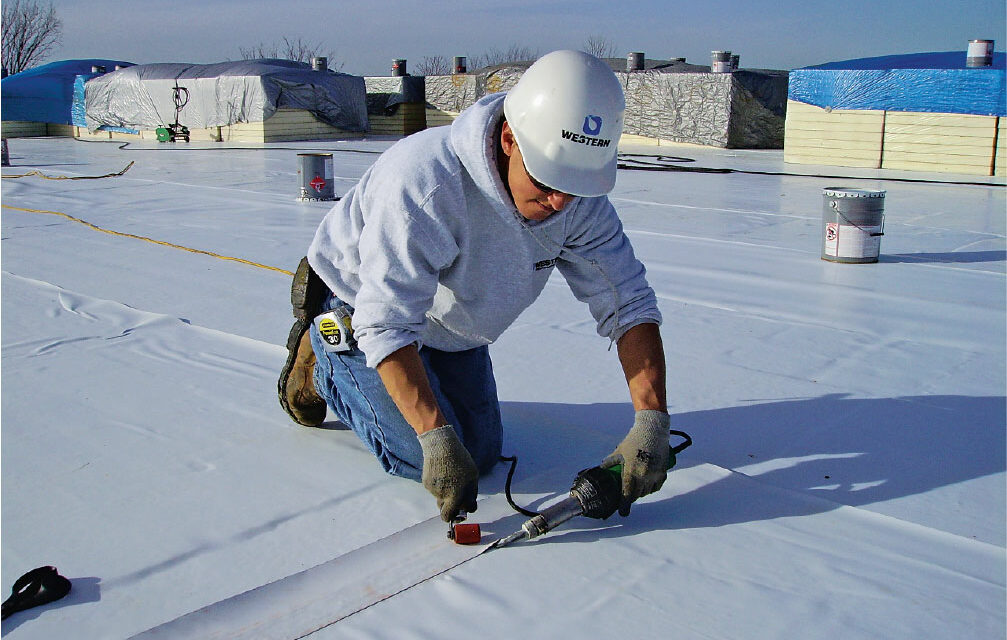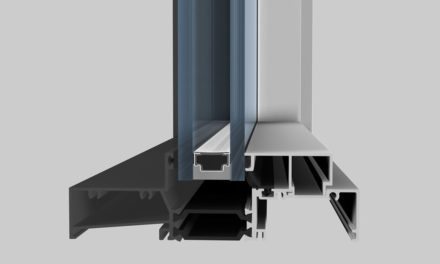Maintaining the roof on any building or facility can be an arduous task for any building owner or property manager. The roof, often the first line of defense against the elements, is an important structure that must be carefully monitored and maintained to protect the overall integrity of the building. Leaks in roofs are often difficult to track down and can lead to damage to interior finishes, unhappy tenants and costly repairs.
Western Specialty Contractors’ three roofing branch managers recently sat down to discuss the roofing issues about which facility managers are most concerned.
What roofing questions do people ask you the most often?
Keegan Tune (KT), Kansas City Roofing Branch Manager: How much is it going to cost to fix my roof? How much life do I have left in my roof? What’s the best kind of roof?
Jack Schneider (JS), St. Louis Roofing Branch Manager: What is the most economical option to stop my roof from leaking? What roofing system do you recommend? How much life does my roof still have?
Michael Boyle (MB), Peoria Roofing Branch Manager: How cheap can I fix the problem?
What roofing question should people ask you, but don’t?
KT: What roof has the best life-cycle cost? What is the best roof for my building?
JS: What type of roof can be installed within my budget? Can we set up a maintenance service contract? Can you provide budget pricing on other roofs in our facility?
MB: Should I replace the roof now or do I have any life left in it? What are the “BEST” roofing options you would recommend for my facility?
What is your best roofing advice for a property manager/owner?
KT: Know the condition of your roofs. Inspect and maintain them often — budget for repairs and replacements.
JS: To have a reputable contractor install a roofing system that they are certified to install, in turn providing a manufacturer’s warranty and a contractor workmanship warranty. To make sure they receive the manufacturer’s warranty and operations and maintenance manual from the roofing contractor. Make sure they receive the roofing contractor’s workmanship warranty at the end of a project (when it’s offered). Let a roofing contractor educate maintenance techs on proper roofing maintenance after a new roof is installed to maintain its warranty after the contractor workmanship warranty has expired. This can be done as a lunch and learn.
MB: We should talk about what the intended use is for the building and is it a long-term investment for them or is it being repaired for sale?
What are the most important things that your prospects should know before buying?
KT: Contractor and manufacturer credentials and a defined scope of work.
JS: The contractor’s reputation. If they are bonded. If they are insured. The contractor is installing what is being asked for (i.e. detailed proposals, pictures, etc.). They do not need payment up front. (i.e. before purchasing material or even starting the roof). Financially stable.
MB: Who/what type of company they are contracting with. What kind of warranty will they be receiving – a contractor or manufacturer NDL warranty? Is there a detailed scope of work? Are all conditions covered for a complete roofing system?
What are the three most critical elements of an effective roof maintenance program?
KT: Qualified inspectors/contractors, consistency and cost.
JS: A certified contractor of the roofing system is making the repairs. A timely schedule for roof cleaning is decided on (cleaning moss, branches, leaves, etc. off the roof, out of drains). Reports are made each time the contractor is on the roof for scheduled cleaning/repairs. Documentation benefits the owner and the contractor.
MB: A quality local company. Only certified applicators on warranted roofs. Maintenance inspections regularly.
Have there been any “critical developments” in the roofing industry of which your customers should be aware?
KT: Roof coatings have increased significantly but are not suitable for every roof and certainly not in every situation. Coatings have also made it possible for some less qualified contractors to tackle projects that they don’t have the expertise to perform. R-value requirements are continually increasing so being aware of local codes, and compliance needs are key.
JS: Recent changes in the energy code laws, some states have adopted, others haven’t (i.e., R-30 insulation code above roof deck). Carlisle Syntec Systems has introduced the “Velcro” roofing system. No adhesives to bond membrane to insulation. Carlisle Syntec Systems has approved the material Cav Grip III to install EPDM membrane in the field and flash onto walls.
MB: Roof coatings over existing roofing with long-term NDL warranties are becoming more prevalent. New products are out that minimize or stop any odors from entering the building through air intakes and openings. In some cases, “R” values can be increased without raising units and mechanical equipment by using a new insulation material.
For more information about Western Specialty Contractors’ roofing services, visit www.westernspecialtycontractors.com/projects/services/roofing-services/.
About Western Specialty Contractors
Family-owned and operated for more than 100 years, Western Specialty Contractors is the nation’s largest specialty contractor in masonry and concrete restoration, waterproofing and specialty roofing. Western offers a nationwide network of expertise that building owners, engineers, architects, and property managers can count on to develop cost-effective, corrective measures that can add years of useful life to a variety of structures including industrial, commercial, healthcare, historic, educational and government buildings, parking structures, and sports stadiums. Western is headquartered in St. Louis, MO with over 30 branch offices nationwide and employs more than 1,200 salaried and hourly professionals who offer the best, time-tested techniques and innovative technology. For more information about Western Specialty Contractors, visit www.westernspecialtycontractors.com.





